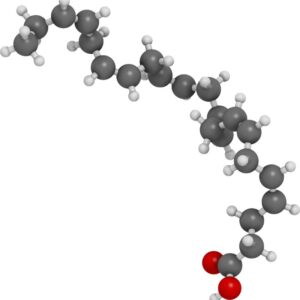Omega-3s
July 5, 2023
By Romana Brennan, MS, RD
 You may have heard of omega-3s, as well as fish oil supplements, but do you know what they are and why they are important?
You may have heard of omega-3s, as well as fish oil supplements, but do you know what they are and why they are important?
What are Omega-3s?
Omega-3s, or omega-3 fatty acids, are a type of polyunsaturated essential fatty acid. Unlike saturated fats, polyunsaturated fats are liquid at room temperature and are less stable, meaning they oxidize or break down more easily. Omega-3 fatty acids are considered essential because our bodies do not have the ability to make these fatty acids, and we must get them through food or supplementation.
While omega-3 supplementation has gained significant popularity over the past few years, we cannot forget about the variety of food sources of omega-3 fatty acids. These include nuts and seeds (ex. walnuts, chia seeds, hemp seeds, and flax seeds), as well as whole-food soy products (ex. edamame and tofu), avocado, and oily fish, such as salmon, sardines, trout, anchovies, and mackerel. Incorporating a variety of these foods into the diet can help ensure that you are getting all 3 main types of omega-3 fatty acids: alpha-linolenic acid (ALA), eicosapentaenoic acid (EPA), and docosahexaenoic acid (DHA).
Why are Omega-3s important?
These fatty acids serve as important components of each cell membrane in our body and are integral to the communication between cells. From brain and eye health to heart health, omega-3s have been shown to be widely beneficial for a variety of body systems. Consuming adequate amounts of omega-3s has been shown to lower the risk of cardiovascular disease, in part by increasing levels of high-density lipoprotein (HDL), decreasing triglycerides (TG), and helping regulate the body’s inflammatory response (1). Chronic, or long-term, inflammation can contribute to a variety of chronic conditions and diseases. Given their anti-inflammatory effect, omega-3s have been shown to help individuals struggling with chronic diseases driven by inflammation, especially those related to metabolic dysfunction (2). Omega-3 consumption has even been found to be effective in reducing symptoms of depression and anxiety (3, 4).
 How much omega-3 should I be getting?
How much omega-3 should I be getting?
The daily Adequate Intake (AI) established by the National Academy of Medicine in order to maintain nutritional adequacy in adults is 1.6 grams for males and 1.1 grams for females (5). These numbers were based on intake levels in healthy individuals, and may not be reflective of the optimal amount to prevent or heal from acute or chronic symptoms or disease.
Omega-3s and your health
At PPMA, we ensure all health recommendations are tailored to you. Be sure to speak with a doctor or dietitian to determine if you may benefit from supplementing with an omega-3 fish oil, as well as your optimal individualized dosage. You can also ask your doctor about assessing your omega-3 status.
Romana Brennan , MS, RD, is a Dietitian Nutritionist at PPMA and is board certified by the Commission on Dietetic Registration as a Registered Dietitian Nutritionist. Romana received her Bachelor’s Degree in Integrative Biology, with a minor in Spanish from the University of California, Berkeley. She holds her Master’s Degree in Nutrition, Healthspan, and Longevity from the University of Southern California. Here she also completed her dietetic supervised practice, training under Registered Dietitians in a variety of inpatient, outpatient, community, research, and private practice settings.
, MS, RD, is a Dietitian Nutritionist at PPMA and is board certified by the Commission on Dietetic Registration as a Registered Dietitian Nutritionist. Romana received her Bachelor’s Degree in Integrative Biology, with a minor in Spanish from the University of California, Berkeley. She holds her Master’s Degree in Nutrition, Healthspan, and Longevity from the University of Southern California. Here she also completed her dietetic supervised practice, training under Registered Dietitians in a variety of inpatient, outpatient, community, research, and private practice settings.
Schedule a FREE consultation with a nutritionist today! Call (949) 566-8179 or contact us.



 How much omega-3 should I be getting?
How much omega-3 should I be getting?